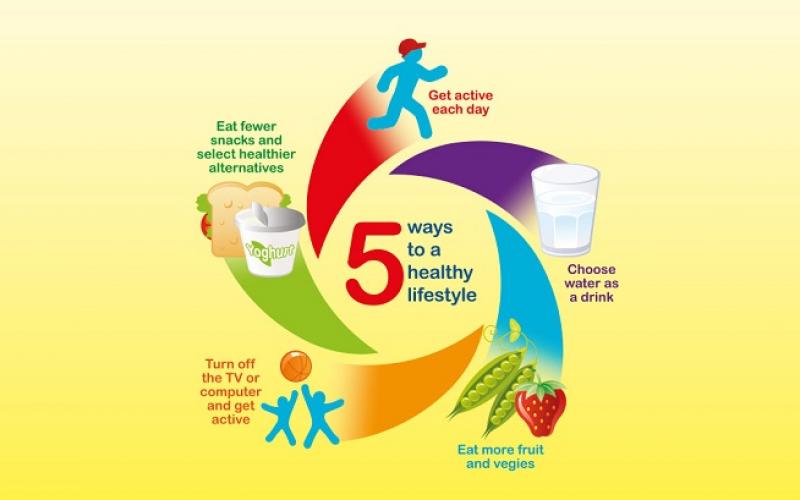
It’s likely that sleep will improve with better nutrition, exercise and the reduction of stress. To set your body’s sleep rhythm, go to bed and wake up at the same times each day and put electronics away at bedtime. Adults should sleep 7-8 hours each night. Exercise has tremendous short and long term benefits and requires less time than you think.

With small changes, blood pressure, joint and bone health, energy level and mood will improve, and your cardiovascular risk will decrease. Exercise brings in oxygen, strengthens your muscles and heart, improves blood flow, strengthens bones and moves toxins out. Actively exercising 30 minutes a day will improve your heart, brain, immune system, mood and more. Take the stairs, park farther from the door, and walk, exercise or stretch a few minutes every hour if you have a desk job. Start by simply moving more throughout the day. Save money and calories by drinking regular water rather than juices, colas and flavored waters that contain extra calories and unhealthy chemicals.

Avoid snacking, which is bad for your metabolism. Determine your portion size based on your caloric needs and lifestyle. Eat a high fiber diet with 3-4 servings of fruits and vegetables each day. Instead, include healthy carbs, proteins and fats in each meal. Don’t neglect certain types of foods as many diets suggest (unless your doctor recommends it for a particular health problem). Learn quick and easy recipes that make healthy cooking and meal preparation easier. Learn what truly healthy whole foods are, not what are advertised as whole and healthy. To get the nutrition you need, focus on eating healthy, unprocessed, whole foods in 2-3 meals a day. Remember to take small steps, incorporating healthy changes that will last. Based on your personal goals and health status, consider the following suggestions. Some changes may take longer to become part of your daily lifestyle, but if you stick with it you’ll find your health improving. As time goes on, continue to make small changes. That first small change with its resulting success will motivate you to go further. Identify something that can be quickly and easily addressed and changed. On your own, or in partnership with your primary care physician, consider what you eat, your activity level, your stressors and your sleep. Review Your Lifestyle & Start with An Easy Change By making simple, long-lasting and fundamental changes in your daily life, you can significantly improve your health in each category. Moini believes there are 5 pillars to a healthy life.Īll five are interdependent and to be healthy, you need them all.

But regardless of your goals and current health status, Dr. Just healthy living in moderation.” Five Pillars to a Healthier Lifeīecoming healthy may have a different meaning or goal for each person. “No pills, no supplements, no strict rules. “Because of what I learned through research to gain a healthier life personally, I can help my patients learn the basic science of healthy living and implement realistic changes,” says Dr. And he has a deep appreciation and understanding for people who struggle to start or maintain healthy habits. Moini transformed his own unhealthy habits into a sustainable, enjoyable healthy lifestyle about 10 years ago. “Most have spent a lot of money and effort on diet plans or supplements without any long-term results.” Dr. “As a primary care doctor, I have seen many patients who are frustrated with their weight and unhealthy habits,” says University Hospitals internal medicine physician Babak Moini, MD. Are you hoping to live a healthier life? Most of us want to lose weight, have more energy and manage seemingly chronic health conditions without a lot of medications.


 0 kommentar(er)
0 kommentar(er)
